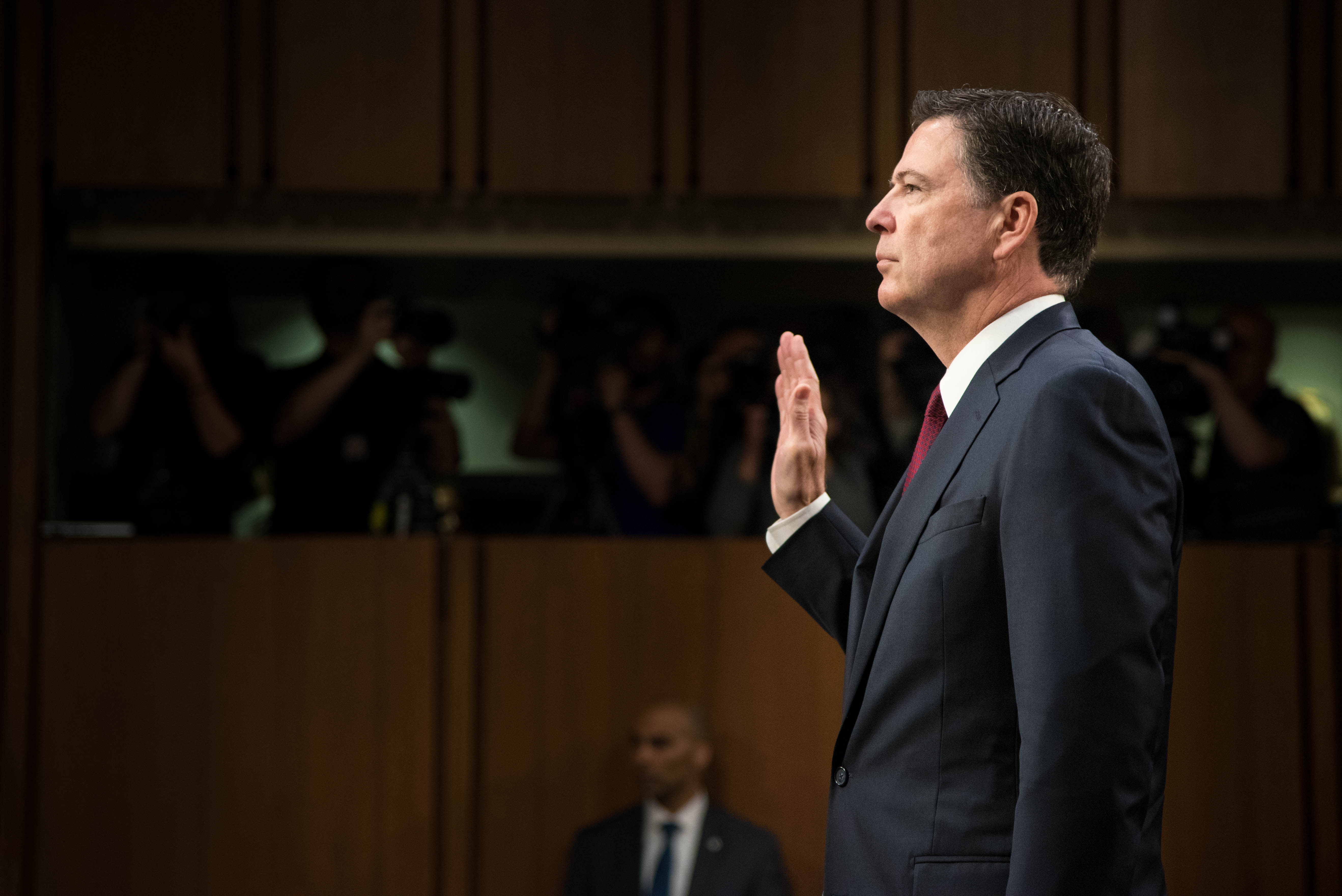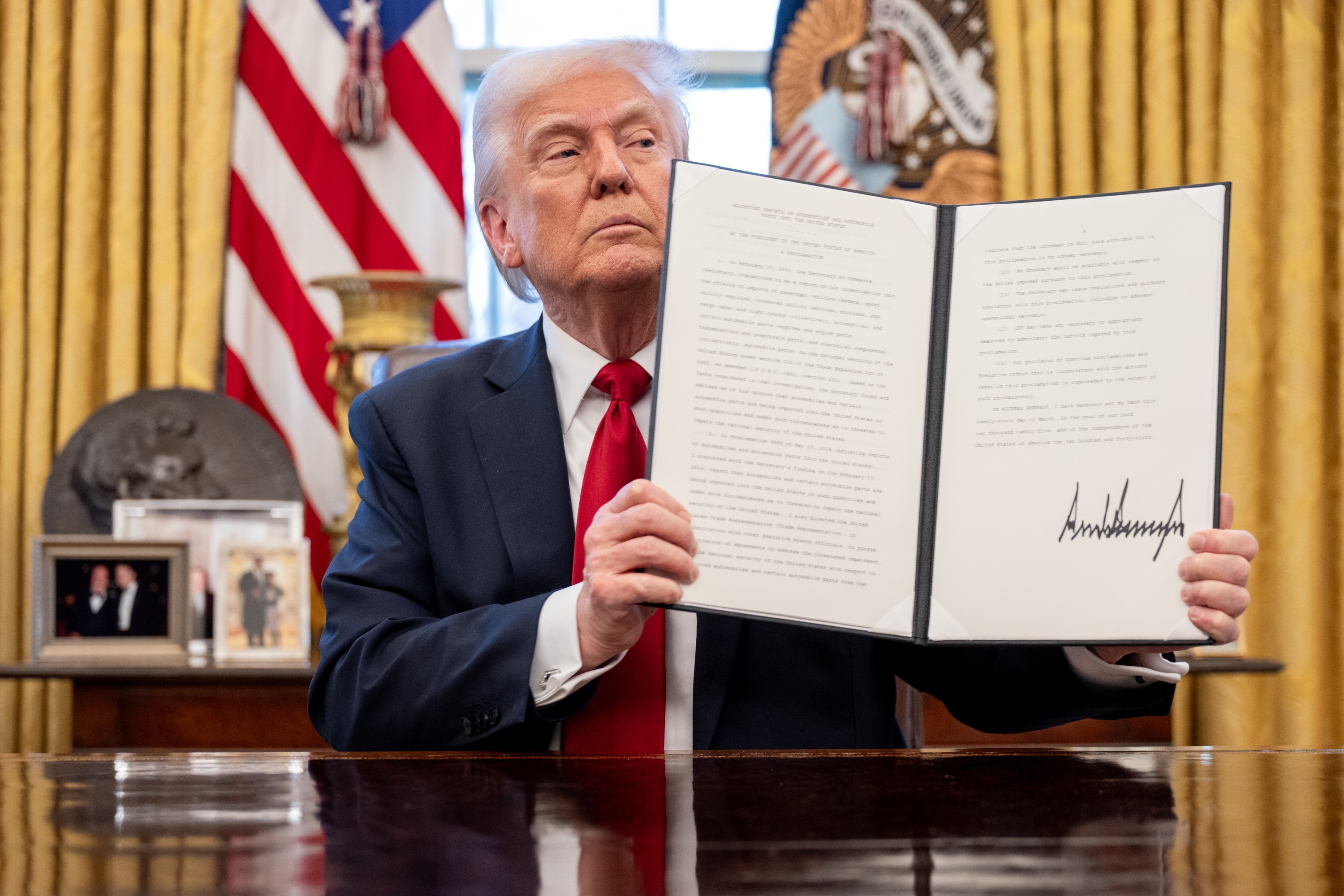The Situation: Not The Way I Wanted This to End

The Situation on Monday contemplated shame.
Later that day, Senior District Judge Cameron McGowan Currie tossed out the criminal cases against James Comey and Letitia James on grounds that the prosecutor in the case, Lindsey Halligan, was not properly appointed as interim United States attorney.
Let me be candid: This is not the way I wanted these cases to end.
Comey and James are, as best as I can discern, factually innocent of these indictments, which were brought maliciously by a woman acting at the direct behest of a president who hates the defendants. There is something mildly unsatisfying about the court’s resolving their two cases on the basis of merely one of the myriad procedural outrages that were all just mosaic tiles in a much larger abomination: the president’s abuse of the criminal process to go after those who displease him.
It misses a very large forest for a single proverbial tree.
And not a particularly interesting tree, either. Whether a particular statute does or does not allow the attorney general to install an interim U.S. attorney in a vacant office for more than one 120-day term—or whether the power to install such interim figures shifts exclusively to the courts after the first 120-day term—turns out to be an important tree, indeed. But it is a particularly technical one over which to lose focus of the forest of horrors in which it sits.
Because resolving the Comey and James cases on this basis leaves unresolved and unaddressed by the courts questions more central to the protection of democracy and dissent in the context of this administration—questions such as:
- Were these prosecutions vindictive and malicious? (Answer: Duh!)
- Were these defendants actually guilty of the charged conduct? (Answer: Nope.)
- Did these indictments even really allege criminal conduct? (Answer: Not really.)
- Were there grotesque abuses of the grand jury process, of which the illegality of Halligan’s appointment was only the thin edge of a very large wedge? (Answer: Yup.)
So let me confess to being—notwithstanding the sense of relief that these prosecutions, absent appellate court intervention, will not go forward—left a little cold that the government will not face an accounting for any of these questions. This is particularly true regarding the sheer paucity of evidence of criminality in either case, a matter for which it is simply appalling thatHalligan will not be accountable in court.
To put it bluntly, the government and Halligan here got off on a technicality.
And yet, in the rough and tumble world of criminal litigation, a win is a win. It is good for the defendants—if not intellectually or emotionally satisfying—to win these cases quickly and not have to go to trial, which is expensive, time consuming, and always involves uncertainty. It is good for democracy to have a swift rebuke of the administration’s conduct, even if a rather technical one that ignores the bigger picture. And yes, it is generally good to resolve cases on narrower, rather than broader, grounds where possible.
The Comey case is very likely, though not certainly, over, though its denouement will take some time. The government will likely appeal, which will take a few months, and if it loses at the Fourth Circuit Court of Appeals, it has the option of asking the Supreme Court to review the matter—which would take more time.
If it were to prevail, the case against Comey would revivify before Judge Michael Nachmanoff, putting all of the other issues back on the table.
Even assuming the government loses on appeal, it still has the option of reindicting Comey, as the case was—somewhat bafflingly—dismissed without prejudice.
But this seems like a long-shot even though theoretically possible. The prosecutor would have to be someone either confirmed by the Senate or appointed by the court, not by the attorney general, and thus would likely not be Halligan or another of her ilk. And we know what happens when professional prosecutors look at these cases. What’s more, any attempt to bring this loser of a case back to life would run up against a probably-prohibitive statute of limitations issue—as Halligan raced to get this prosecution initiated with only a few days to spare before the statute of limitations lapsed. Realistically, any effort to prosecute Comey on these charges now probably depends on whether five justices of the Supreme Court want to go to bat for Trump’s authority to terrorize his political foes on a genuinely horrible record. And while I wouldn’t put it past them, I don’t think five justices are that dumb or blind to optics.
The James case is a little less rosy for the defendant, but only a little and only because the statute of limitations issue is not quite as pressing. To continue the legal harassment of James, the administration would need to either prevail on appeal (same as Comey) or put in a Senate-confirmed or court-appointed interim U.S. attorney who would, for some reason, want to proceed with the reindicting the case.
This person would, unlike in the Comey case, not face a prohibitive statute of limitations issue. But he or she would face other hurdles—getting a total lemon past another grand jury, for example. What’s more, the very statute that gives the government six months to file a new case states flatly that it “does not permit the filing of a new indictment or information where the reason for the dismissal [is for] some other reason that would bar a new prosecution.” James might plausibly argue that the “reason” for this dismissal was that a prosecutor had been illegally installed to engage in a malicious prosecution of her and that allowing the refiling would merely reward that bad and illegal act with a second bite at the apple.
Speaking of vindictive, I’m feeling a bit vindictive about this whole thing. It seems to me deeply important that defense attorneys go on offense here and seek sanctions against Halligan and, if at all possible, go after her law license.
One of the problems with this resolution of the matter is that the wild impropriety of her conduct—not merely her appointment but her behavior both in preparing the cases and before the grand jury will go unaddressed.
Assuming this order stands, the courts will never resolve the vindictive prosecution motions both defendants have filed. And Judge Nachmanoff will never have occasion either to rule on whether this illegally-appointed prosecutor ever actually managed to present an indictment to the grand jury which—a magistrate judge has found—she misinformed on basic principles of law. Nor will he ever rule either on alleged Fourth Amendment violations or breaches of the attorney-client privilege in the Comey case. And judges in neither case will have the opportunity to address the frank ethical failure, obvious from the beginning, of bringing cases so utterly unsupported by facts.
It seems to me important that these questions, though moot now as defenses for Comey and James, not be mooted out in terms of accountability for the government actors who made these travesties happen.
Because the travesties are continuing. They are continuing against others in garbage investigations in South Florida, for example—a subject on which I will have more to say. They are continuing in ongoing threats to prosecute Sen. Adam Schiff. They are continuing in announced efforts to investigate Democrats, but not Republicans, for their alleged ties to Jeffrey Epstein. It is critically important to send a message to prosecutors and FBI agents that their participation in this sort of corruption of the criminal process will be scrunitized—and that such scrutiny will not end with dismissal of the corrupt cases they bring.
I am not entirely sure what form this accountability should take—whether it’s bar complaints, motions for sanctions before the presiding judges, civil suits, or some combination of all. And it may have to wait until the appellate process is exhausted and the disposition of the criminal matters are more final than they are today. But it cannot be that if you set out maliciously and illegally and on the president’s behalf to rid him of meddlesome priests, the worst that happens to you is that you fail and the priests walk free.
The corrupt prosecutor has to have more skin in the game than that.
The Situation continues tomorrow.





